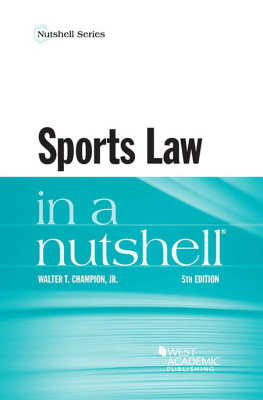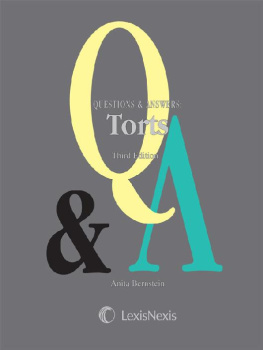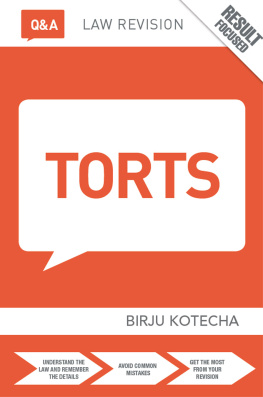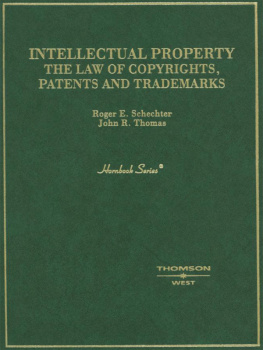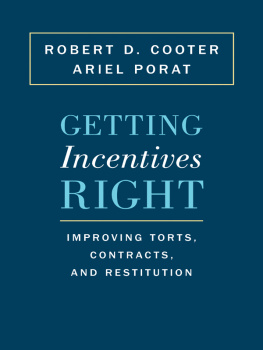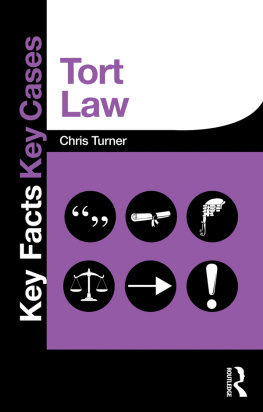West Academic Publishings Emeritus Advisory Board
Jesse H. Choper
Professor of Law and Dean Emeritus
University of California, Berkeley
Yale Kamisar
Professor of Law Emeritus, University of San Diego
Professor of Law Emeritus, University of Michigan
Mary Kay Kane
Late Professor of Law, Chancellor and Dean Emeritus
University of California, Hastings College of the Law
Larry D. Kramer
President, William and Flora Hewlett Foundation
James J. White
Robert A. Sullivan Emeritus Professor of Law
University of Michigan
West Academic Publishings Law School Advisory Board
Joshua Dressler
Distinguished University Professor Emeritus
Michael E. Moritz College of Law, The Ohio State University
Meredith J. Duncan
Professor of Law
University of Houston Law Center
Rene McDonald Hutchins
Dean and Joseph L. Rauh, Jr. Chair of Public Interest Law
University of the District of Columbia David A. Clarke School of Law
Renee Knake Jefferson
Joanne and Larry Doherty Chair in Legal Ethics &
Professor of Law, University of Houston Law Center
Orin S. Kerr
Professor of Law
University of California, Berkeley
Jonathan R. Macey
Professor of Law,
Yale Law School
Deborah Jones Merritt
Distinguished University Professor,
John Deaver Drinko/Baker & Hostetler Chair in Law
Michael E. Moritz College of Law, The Ohio State University
Arthur R. Miller
University Professor and Chief Justice Warren E. Burger Professor of
Constitutional Law and the Courts, New York University
Grant S. Nelson
Professor of Law Emeritus, Pepperdine University
Professor of Law Emeritus, University of California, Los Angeles
A. Benjamin Spencer
Dean & Chancellor Professor of Law
William & Mary Law School

Torts
Second Edition
Roger E. Schechter
Professor Emeritus of Law
George Washington University Law School
A SHORT & HAPPY GUIDE SERIES

The publisher is not engaged in rendering legal or other professional advice, and this publication is not a substitute for the advice of an attorney. If you require legal or other expert advice, you should seek the services of a competent attorney or other professional.
A short & happy guide series is a trademark registered in the U.S. Patent and Trademark Office.
2012 Thomson Reuters
2022 LEG, Inc. d/b/a West Academic
444 Cedar Street, Suite 700
St. Paul, MN 55101
1-877-888-1330
Printed in the United States of America
ISBN: 978-1-63659-110-0
iii
Dedicated to all my incredible students.
And to the other ones as well.

v
Introduction
1.What This Book Isnt
This book isnt a substitute for going to class or reading the opinions in your casebook. Really. I am not just saying that because the other law professors will beat me up if I dont. I mean it.
Only by going to class will you be able to figure out what your professor thinks is important. Only by reading the cases will you be able to get a sense of how courts formulate and justify legal rules, and what kinds of arguments are considered valid or persuasive by folks in the legal system. These are things which you will be expected to do on your own final exam.
This book also isnt an effort to either justify or criticize the existing rules of tort law. Policy judgments lurk behind all legal rules, and most legal rules can be criticized for one reason or another. For instance, some rules of tort law may make goods and services more expensive. Others may make it impossible for some folks to get insurance. Still others may lull people into a sense of false security and discourage them from making efforts to protect their own safety. On the other hand, the rules may also do a lot of good, like encouraging doctors, product manufacturers, and drivers, to take inexpensive precautions that can avoid major catastrophes.
Whether any given rule is the best possible rule or whether it should be tweaked or discarded are cool questions to debate. Thoughtful people disagree about most of them, and answers often depend, as you might guess, on how you define best in the first place. The questions are not just of academic interest. Real lawyers raise them in real cases when they argue for a particular interpretation of, or change in, the law.
It is likely that your professor will want you to engage in some of that debate, and eventually you will find yourself making vi arguments on these kinds of issues to judges, because in our system judges can actually change the rules, despite protestations to the contrary by Supreme Court nominees testifying before the Senate.
All that said, to keep this book short and relatively happy, we are going to take the rules pretty much as we find them, without kicking over the rocks and looking at what is underneath. That is not an endorsement of the rules. You can safely assume that I think some of them are stupid. I will just leave you to guess which ones.
2.What This Book Is
So what is the purpose of this book, if not to spare you the effort of going to class and reading your assignments? Simply put, my goal is to give you some sense of certainty and structure about the material. In order to do the fun stuffmake arguments and critique the legal rulesyou need to know what those rules are. While you may be able to deduce the rules from the cases and from class discussion, I have been in the law professor game long enough to know that it is not a sure bet.
Some teachers simply dislike rules so much that they deliberately obscure them. Others are sowhat is the word I am looking for herecerebral, that they are incapable of summarizing the rules. Still others are so mesmerized by the arcane theories they have set out in law review articles that they choose to devote all their class time to those theories rather than to any coverage of the rule structure. It is therefore quite possible for you to get to the end of your first semester without a clear sense of the underlying rule structure in the law of torts. I hope that this book will be a very efficient and very painless antidote to that problem.
Let me put that another way. This book is like a map. It is not a substitute for going on the journey, but my hope is that it will make the journey more efficient and less frustrating. You can turn to it when you get lost and hopefully quickly get back on the path.
vii
3.A Few Words About Torts
Torts is a cool subject. Of course Im biased, but it really is. Every society has to have some way of dealing with the economic consequence of injuries. The considerations to be taken into account in designing that system are fascinating. Even more good news is that the cases are entertaining and highly memorable. You cannot believe how many different ways people have come up with to hurt themselves and others.
Nonetheless, only a minority of law students plan a career as personal injury lawyers. At some schools virtually no one chooses to go into that line of work. Why, then, do all law schools require a course in Torts, something which has been true for at least the last 120 years?
There are at least two reasons. Torts, of all the first year courses, is the one where most of the rule structure still comes from common lawthat is to say, cases rather than statutes. While there are certainly statutes that are relevant in the study of Torts, there is no overarching and legally binding codification like the Federal Rules of Civil Procedure, the Uniform Commercial Code, or the various state criminal codes. Learning how judges make law is crucial information for all lawyers. Your study of Torts enables you to see what kinds of judicial arguments are legitimate and what kinds are not, and to begin to get a sense of the appropriate sphere of responsibility of courts versus legislatures.

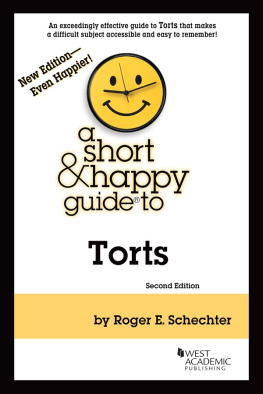
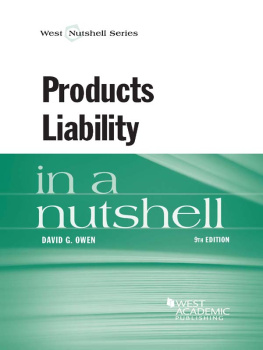

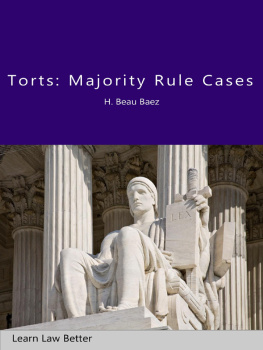
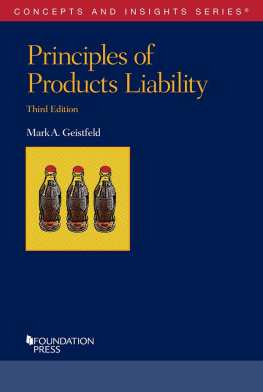
![Richard A. Epstein - Cases and Materials on Torts (Aspen Casebook) [Connected Casebook]](/uploads/posts/book/244338/thumbs/richard-a-epstein-cases-and-materials-on-torts.jpg)
